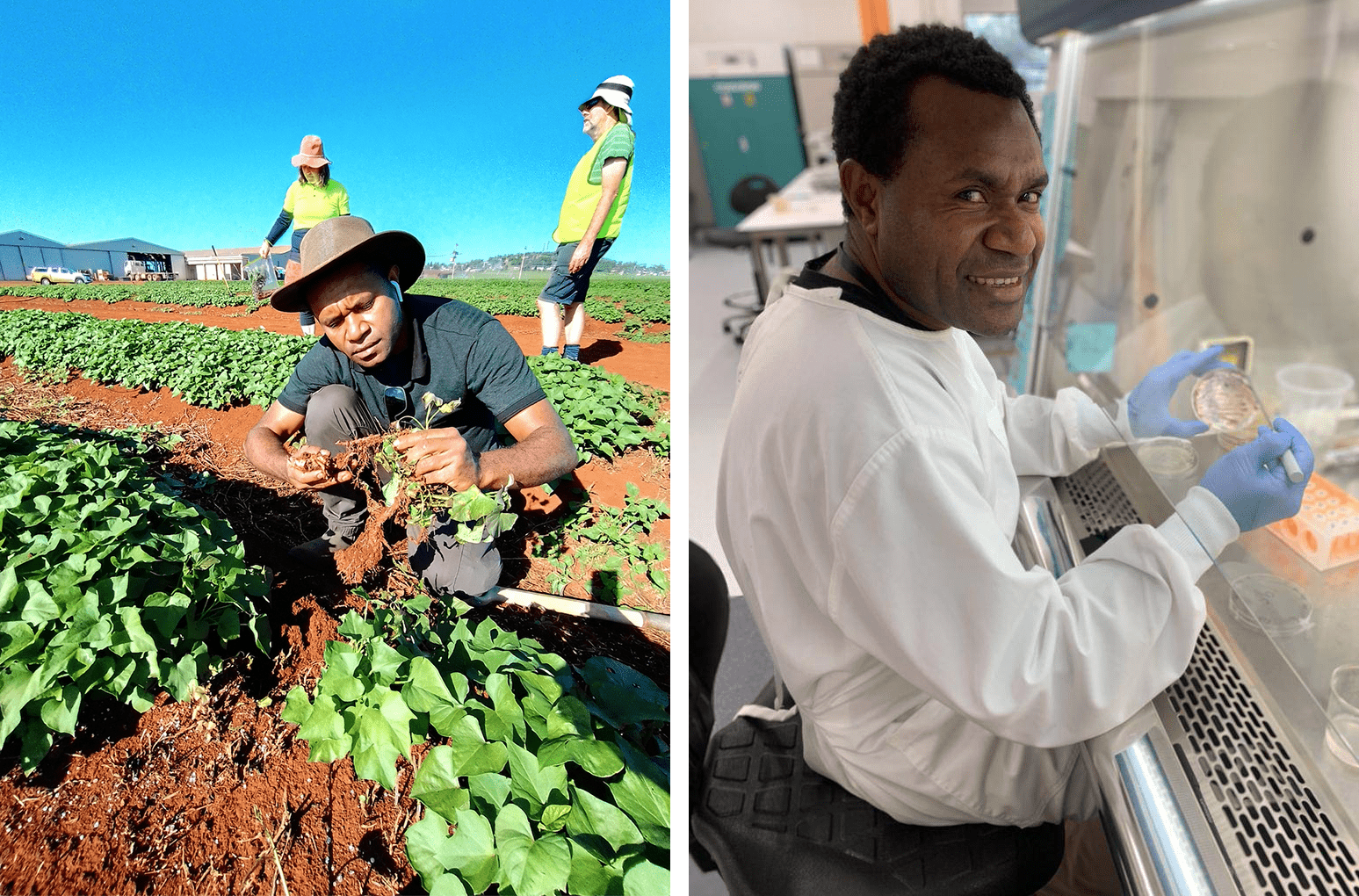

Investigations into the breakdown of sweetpotato bedding roots in Australia and Papua New Guinea, Trop Ag
October 27, 2022
The Crawford Fund’s Queensland Committee has again partnered with the TropAg International Agriculture Conference to assist 10 young researchers from developing countries attend and present their science at this international conference which will be held in Brisbane from 31 October to 02 November 2022.
Successful candidates were chosen by a selection panel made up of representatives of The Crawford Fund and the TropAg conference organisers, based on submitted abstracts of their research.
In the lead-up to the conference we will be publishing short blog posts written by the young researchers about their work. Here is the ninth blog in the series.
By Wilfred Wau, Centre for Crop Health, Institute for Life Science and the Environment, University of Southern Queensland, Toowoomba, QLD, Australia.
(Wilfred L. Wau, Bree A. L. Wilson, and Elaine C. Gough)
I am pleased to express my profound appreciation to the Crawford Fund for its continued support in the promotion of sweet potato research both here in Australia and abroad.
I am a first-year master’s student at the University of Southern Queensland (UniSQ), from Papua New Guinea (PNG). After graduating with a bachelor’s degree in Agricultural Science from the PNG University of Technology in 2012, I worked with the PNG National Agriculture Research Institute (NARI) for over a decade as a Crop Protection Researcher.

I was fortunate to work in collaboration with ACIAR-funded projects to support the intensification of commercial sweet potato production in PNG where it is grown as a major staple food crop. My master’s research will follow from those ACIAR-funded projects and investigate the breakdown of sweet potato roots in Australia and PNG.
The propagation of vegetative sprouts for field planting is normally sourced from plant beds. However, the breakdown in storage roots is commonly seen, resulting in a significant yield decline in the quality and quantity of premium sprouts for field planting which can limit sweet potato production. Biotic factors such as soilborne pathogens and endophytic bacteria and fungi may play a role in the premature breakdown of bedding roots. Previous research revealed that Erwinia spp., Fusarium spp. and Sclerotium rolfsii have been implicated in storage root rots and wilting of the sprouts. In Australia and PNG, it is unclear which of these microorganisms are associated with the breakdown of sweet potato storage roots.




